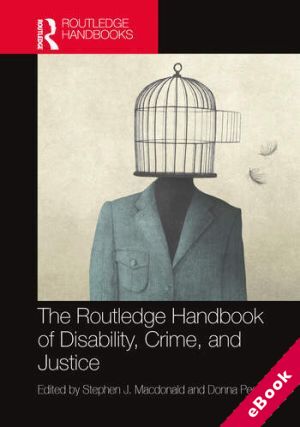
The device(s) you use to access the eBook content must be authorized with an Adobe ID before you download the product otherwise it will fail to register correctly.
For further information see https://www.wildy.com/ebook-formats
Once the order is confirmed an automated e-mail will be sent to you to allow you to download the eBook.
All eBooks are supplied firm sale and cannot be returned. If you believe there is a fault with your eBook then contact us on ebooks@wildy.com and we will help in resolving the issue. This does not affect your statutory rights.
Offering an interdisciplinary exploration of the complex relationships between disability, crime, and victimisation, this comprehensive handbook gathers insights from leading scholars across diverse fields, including disability studies, criminology, history, sociology, forensic psychology, forensic psychiatry, and the neurosciences, who have conducted extensive research in these areas.
Adopting a global perspective, this volume applies various theoretical frameworks to explore the experiences of diverse disabled communities, including those with mental health issues, neurodiversity, sensory impairments, and physical disabilities, as they interact with the criminal justice system. It also presents contemporary perspectives on crime and victimisation, encompassing biomedical, biopsychosocial, structural, cultural, and realist approaches, and in doing so it delves into critical issues, including marginalisation, discrimination, exclusion, and intersectionality, while also addressing the inherent disablism and ableism apparent in the justice system. Divided into five comprehensive sections – Introduction to the Routledge International Handbook of Disability, Crime, and Justice; Histories of Disability and Crime; Biomedical and Biopsychosocial Criminology; Structural Disability Criminology; Cultural Disability Criminology; and Realist Disability Criminology, this groundbreaking publication covers a wide range of topics. These include disability theory, penal populations, community interventions, policing, probation, courts, prisons, hate crimes, interpersonal victimisation, domestic violence, sex work, marginalisation, deviance, media representations, and systemic ableism/disablism within the justice system.
The Routledge Handbook of Disability, Crime, and Justice stands as a definitive guide to disability, crime, and justice and will be of value to all those with an interest in this area.